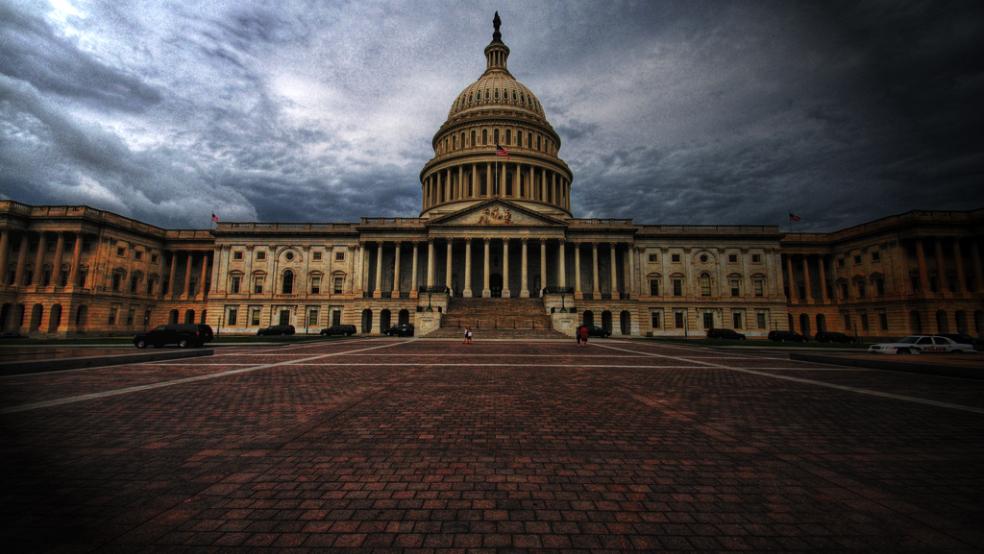The budget deal worked out by congressional leaders and the White House shows that the Washington tradition of political vote buying is alive and well.
The tentative two-year agreement would increase federal spending by $112 billion over the next two years, raise the nation’s debt ceiling and make modest reforms to entitlements like Social Security and Medicare. The package has something for everyone, including measures sure to draw scorn from both Republicans and Democrats.
Related: Boehner’s Last Stand — A Budget Deal That Raises the Debt Ceiling
If everyone hates it, that likely means it will pass.
Republicans stand to gain the most politically. Passage, even if it comes with significant Democratic support, would show the GOP can govern and avoid the budgetary brinkmanship that has gripped Capitol Hill in recent years.
The package also helps “clean up the barn” for House Ways and Means Committee chair Paul Ryan (R-WI) who is set to replace Speaker John Boehner (R-OH) later this week. Hardline Republicans have refused to support any spending that would bust the budget caps imposed by a 2011 agreement, commonly known as sequestration, or raise the debt ceiling.
With two contentious fiscal issues out of the way, Ryan would have more freedom to govern. He quickly tried to endear himself to the far right on Tuesday when he said, “This process stinks.”
Related: Boehner Ready to Exit a Historically Feeble Congress
It also resolves a split between the GOP’s fiscal and defense hawks. While federal spending would increase by $50 billion next year and $30 billion in 2017, divided equally between defense and domestic programs, another roughly $30 billion would go into the Pentagon’s “Overseas Contingency Operations,” known as the war fund.
For 2016, the Pentagon would get an extra $33 billion, just $5 billion short of the $38 billion Republicans jammed into the fund in their budget plan earlier this year at the behest of defense hawks. House Armed Services Committee chair Mac Thornberry (R-TX) told reporters on Tuesday that he was inclined to support the budget deal because it brings “two years of certainty” to defense programs.
For Democrats, not only do they get to boast that the budget deal they spent months pushing for actually worked--they get tens of billions for domestic programs.
“Democrats have long called for bipartisan action to stop devastating sequester cuts from hitting our nation’s military and our middle class. With this agreement, we’ve done just that,” Senate Minority Leader Harry Reid (D-NV) said in a statement.
Related: Congress Asleep at the Switch as the Debt Ceiling Looms
“While this agreement is not perfect, it addresses both investment in domestic priorities that benefit the middle class and defense spending,” he added. Democrats also get to crow that they headed off a large, painful boost in Medicaid premiums for millions of seniors, an age group with considerable political heft.
Meanwhile, Obama would get a major legislative domestic accomplishment and something that has sorely been missing during his presidency: fiscal stability.
With just 15 months left in his second term, the president can turn his focus to other issues he hopes to cement his legacy on, such as climate change, and work with a newly installed Ryan on a possible reform of the U.S. tax code.





